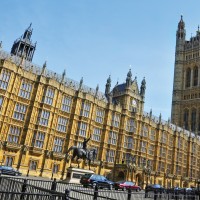
Giving evidence at a Treasury Select Committee hearing, the three major agencies – Fitch, Standard & Poor’s and Moody’s – refused to apologise for miscalculations made in the ratings of structured finance products before the sub-prime mortgage crisis in the US – an event which triggered the global financial crisis.
Standard & Poor’s managing director Dominic Crawley admitted it failed to predict the “severity” of the US housing crisis in 2008 but declined to apologise when pressed by the committee.
“We have repeatedly expressed regret about the assumptions we built into the sub-prime,” he said. “We did not see the severity of the downturn in the US.”
Frederic Drevon, managing director, head of EMEA at Moody’s could only say the agency was not “satisfied” with the performance of its ratings when invited to say sorry for failures leading up to sub-prime.
Fitch Ratings group managing director Paul Taylor conceded the firm is sorry for “aspects” of its structured finance ratings which “went wrong” prior to sub-prime but not for any other parts of its work.
He said Fitch has put in place “fundamental changes” to its US mortgage market ratings criteria since sub-prime, including how it predicts the number of people likely to default.
But he warned it cannot rule out making similar mistakes.
“There is no guarantee we will not miss something in the future,” he said.
Members of the committee, chaired by Andrew Tyrie, expressed dismay and irritation at the ratings agencies’ lack of remorse and reluctance to apologise for past miscalculations.
They were also surprised to hear the agencies say investors should not rely on their ratings nowadays.
Crawley said assigning a rating to a structured financial product is a matter of “opinion” which is susceptible market movements. He argued a rating should form just one part of an investor’s decision-making progress.
“We do not provide advice but the probability of default,” he said. “It is just one tool decision-makers should use.”
Responding to a question about the enhanced oversight role agencies are set to play under Basel III requirements, Crawley also called for ratings to be removed from regulatory requirements.
“We have to be clear we would like to see the mechanic inclination of ratings to be removed from regulation,” he said. “We want to be judged by the market.”
Meanwhile, Fitch’s Taylor said investors pay less attention to ratings agencies today. He pointed out more investors bought US stocks after the country was downgraded last year by Standard and Poor’s.
“Investors do not blindly follow ratings agencies because they assess other factors such as liquidity,” he said. “If you look at Europe today, the markets do not look at what the ratings agencies say.”















